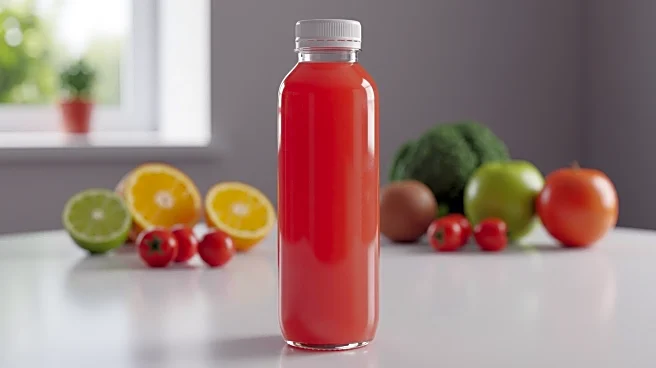What is the story about?
What's Happening?
Släcka, a new beverage brand, is launching a drink designed to replace unhealthy snacks, targeting mid-afternoon cravings. The drink, not a meal replacement, aims to provide hydration and energy, using ingredients like 5-HTP and paraxanthine to curb cravings and boost mood. Developed by entrepreneur David Allred, Släcka seeks to offer an alternative to both unhealthy snacks and appetite-suppressing drugs like GLP-1. The product reflects a growing trend towards functional beverages that empower consumers to make healthier choices.
Why It's Important?
The introduction of Släcka highlights a shift in consumer preferences towards healthier lifestyle choices and the growing market for functional beverages. This development could impact the snack food industry, which has long relied on 'hyper-palatable' products to drive consumption. By offering a healthier alternative, Släcka challenges the dominance of traditional snack companies and aligns with increasing consumer awareness about nutrition and health. The product also taps into the broader conversation about appetite control, offering a non-pharmaceutical option for managing cravings.
What's Next?
As Släcka enters the market, it may face competition from both traditional snack brands and other functional beverage companies. The success of Släcka will depend on consumer acceptance and its ability to effectively market itself as a viable alternative to snacks and appetite-suppressing drugs. The brand's focus on empowerment and control could resonate with consumers seeking healthier lifestyles, potentially influencing future product development in the beverage industry.
Beyond the Headlines
Släcka's launch raises questions about the ethical implications of marketing products as solutions to unhealthy eating habits. The brand's positioning against 'Big Food' and 'Big Pharma' reflects a cultural shift towards questioning established industries and seeking more natural, empowering alternatives. This trend could lead to increased scrutiny of food and beverage marketing practices and a push for greater transparency and consumer education.














